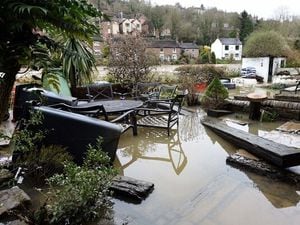Shropshire flooding: Affected business owners urged not to rush in
Business owners affected by flooding have been urged not to rush in to start a clean-up once the water starts to recede.

Dave Williams, from Henshalls Insurance Brokers in Newport and Shrewsbury, said anyone whose premises had been flooded should take extra care before they entered the building.
“Understandably once the flood water starts to lower, you’ll probably want to immediately get your hands dirty to try to get things back to normal and salvage what you can," he said.
See also:
"But it’s important that you should never re-enter any premises until you’re absolutely sure they’re safe.”
Mr Williams said apart from the silt and the mud, floods left behind all kinds of hazards such as exposed wires, weakened buildings and contaminated water.
“Your first priority has to be your own safety, and the health and safety of your employees and anyone else who might enter or pass near your business," he added.
He said before entering any flood-damaged building, business owners should notify their insurer as soon as possible.

“If it’s safe, take pictures of the contents and damage for your insurance company, and the more you can take, the better," he said.
"And turn off your building’s gas, electricity and any fuel taps, but never touch sources of electricity if you’re standing in flood water.”
He said it was vital to check for any structural damage before entering the building, and no-one should go in if there was any chance it may collapse.
“The best thing to do is assume that all water-damaged structures are unstable until proven otherwise, and treat all stairs, floors, roofs and overhangs as unsafe until they have been inspected," he said.
Mr Williams said the insurance company would send a loss adjuster and other specialists to assess the damage, and once their visit was complete and they had signed off the property, clean-up efforts could begin.
“Ensure you and your employees follow every health and safety precaution, such as wearing boots, rubber gloves and other personal protective clothing, as debris can be contaminated with sewage and chemicals or contain unseen sharp objects," he added.
“Don’t be tempted to use a high-pressure hose to clear the mud either as they can blast contaminants into the air. And don’t dispose of any equipment until you’ve notified your insurer as they may refuse to pay out if there is no evidence of the damaged items."





